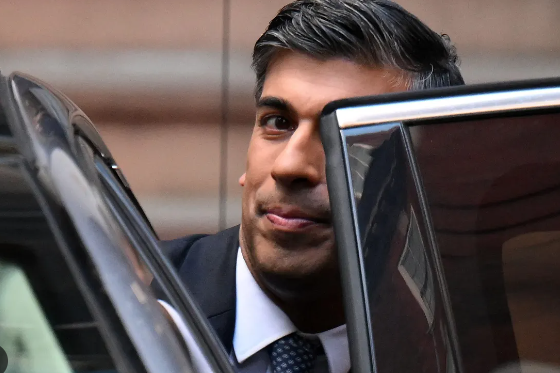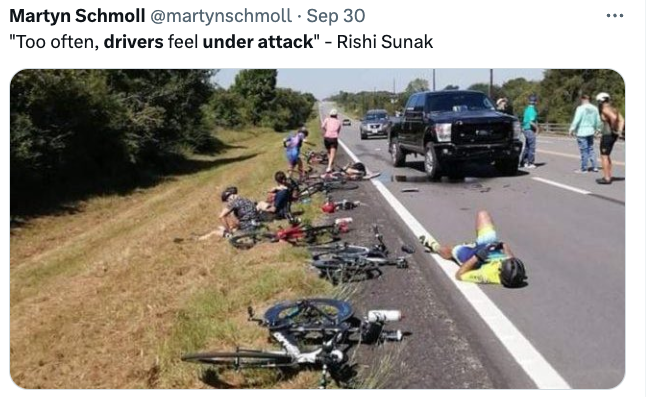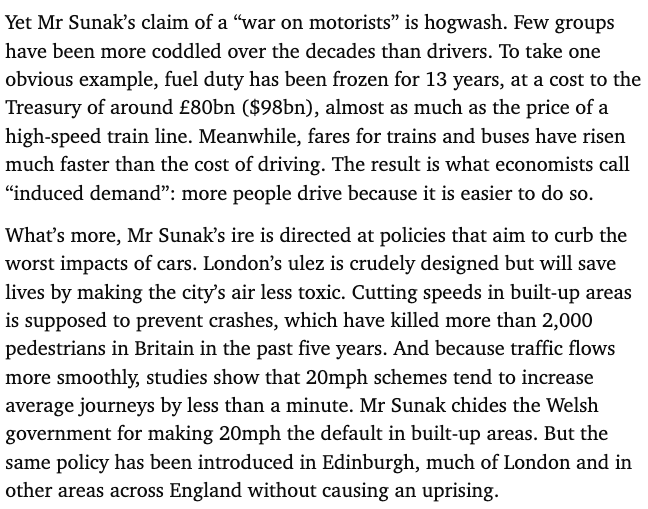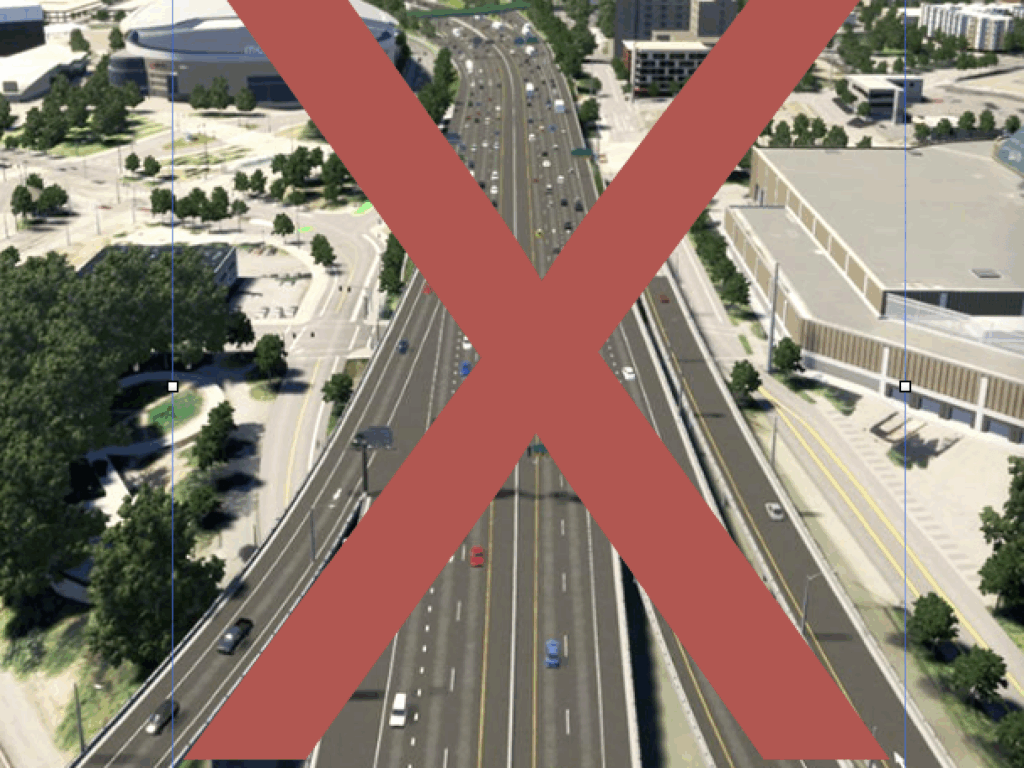UK Prime Minister Rishi Sunak proclaims the primacy of drivers
“We are a nation of drivers”
Those who don’t own cars, or can’t, or choose not to drive, are second class citizens
The transportation culture war is flaring up in Britain. Conservative Prime Minister Rishi Sunak has cancelled the nation’s big high speed rail initiative (HS2), even plowing salt into the ground by pledging to aggressively sell off property acquired for rights-of-way. But that’s just part of his posturing, like that of Phillips Oil’s “76” brand, to show he’s “on the driver’s side.”
Hot on the heels of the rail cancellation, Sunak prominently issued a Driver’s manifesto, proclaiming that the United Kingdom is “a nation of drivers.”
On Sunday, I slammed the brakes on anti-motorist measures. For many, our car is a lifeline. We use them to get to work or see our family. But too often drivers feel under attack. Our new plan will put drivers back in the driving seat and improve their experience on the road.
A caste system for transportation, and those not in cars are the untouchables
In a “nation of drivers” people who walk, cycle and take transit are non-citizens.
Sunak’s comments lay bare the caste-system of transportation in Britain. Those wealthy enough and able enough to own and drive cars are in the favored caste. Those who can’t or choose not to drive, are in the lower-caste untouchable and unimportant.
The “war on cars” strategy is a blatantly political attempt by Sunak, who’s Conservative Party trails badly in polls and which will confront a general election in the next year or so. It’s evident that campaign advisers have made a cynical calculation that many voters will identify themselves as oppressed victims. According to UK Census data, though, 17 million Britons live in households that don’t own a car, and such households represent about 22 percent of all UK households. And even households that own a car frequently include many residents who don’t or can’t drive, and who may choose or want to walk or cycle near their homes.
Phony claims of a “war” on drivers
In addition to cancelling a major rail project, Sunak also has attacked 20 mile per hour speed limits in dense urban neighborhoods calling them “against British values.” He also spoke out against and “low traffic zones”—local policies that have been shown to reduce traffic and improve safety. Sunak proposes stripping local councils of the ability to implement such measures on local streets.
The claim that drivers feel “under attack” met with appropriately graphic replies on social media.
More substantively, The Economist wrote that Sunak’s claims of a “war on drivers” were simply hogwash.
Prominent claims of a “war on drivers” will likely inflame passions, but as the media coverage of Sunak’s obviously political gambit shows, it may help generate some objective scrutiny of these claims. If we look closely at the data, the aggrieved victims of our manifestly unfair transportation system are not drivers, but those who cannot or choose not to drive. The success of local initiatives to reduce driving, lower traffic speeds, make walking and cycling safer, and make transit more available and more convenient, all signal that we can make or transportation system better and fairer by moving away from a world where a car is effectively a prerequisite to full citizenship.




